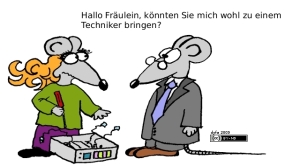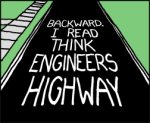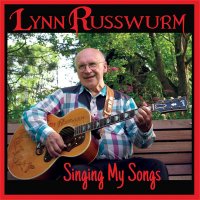If you are interested in licensing your work to allow people to use, share or modify it, Choose a Creative Commons License
CC Licenses
This license lets others distribute, remix, tweak, and build upon your work, even commercially, as long as they credit you for the original creation. This is the most accommodating of licenses offered, in terms of what others can do with your works licensed under Attribution.
Attribution Share Alike
(cc by-sa)
This license lets others remix, tweak, and build upon your work even for commercial reasons, as long as they credit you and license their new creations under the identical terms. This license is often compared to open source software licenses. All new works based on yours will carry the same license, so any derivatives will also allow commercial use.
Attribution No Derivatives (cc by-nd)
This license allows for redistribution, commercial and non-commercial, as long as it is passed along unchanged and in whole, with credit to you.
Attribution Non-Commercial (cc by-nc)
This license lets others remix, tweak, and build upon your work non-commercially, and although their new works must also acknowledge you and be non-commercial, they don’t have to license their derivative works on the same terms.
Attribution Non-Commercial Share Alike (cc by-nc-sa)
This license lets others remix, tweak, and build upon your work non-commercially, as long as they credit you and license their new creations under the identical terms. Others can download and redistribute your work just like the by-nc-nd license, but they can also translate, make remixes, and produce new stories based on your work. All new work based on yours will carry the same license, so any derivatives will also be non-commercial in nature.
Attribution Non-Commercial No Derivatives (cc by-nc-nd)
This license is the most restrictive of our six main licenses, allowing redistribution. This license is often called the “free advertising” license because it allows others to download your works and share them with others as long as they mention you and link back to you, but they can’t change them in any way or use them commercially.
Creative Common Licenses don’t replace copyright law, they work in conjunction with existing copyright law.
Public Domain
Creative Commons also provides tools for marking work that is in the Public Domain, or releasing your own work directly into the public domain. Since copyright law varies around the world, there may be impediments to this depending on where you live.
Other Licenses
Anyone can write their own license, but this can pose a number of problems. It is important to read any license agreement carefully because it is actually a legal contract. Whether you are a user or a creator, make sure you understand what you are agreeing to. If a user fails to honor the terms of the license, the agreement is voided, which means your use of the work is subject to the full force of copyright law. Without a valid the license, the work reverts to Copyright all rights reserved, which means the user is now in a position of infringing copyright — and liable to a $5,000. – $20,000. fine.
If you are a creator, once you license your work, you can’t legally withdraw this grant of permission except in the case of a particular user who flouts the license terms. What you can do is withdraw the work from circulation, but even then anyone who has used the work under your original license terms may continue to do so. It is always possible to change your license to one that is less restrictive. Originally my blogs were licensed CC By-Sa but I have since decreased the restrictions by changing the license to the less restrictive CC by.
Since a license is a legal tool, one question that arises is whether a non-standard license will stand up in court. One of the assets of CC Licenses is that they are written by lawyers.
License interoperability is another area of concern. Very often works with different licenses have mutually exclusive terms. This means it might not be legally possible to combine two or more works with different licenses. Even if the licenses are similar, the terms might be mutually exclusive. If licensing is so confusing that users need to consult a lawyer, they defeat the purpose.
Another problem with non-standard licenses is being able to find work that has been licensed in this manner. It’s hard enough to find Creative Commons licensed work online.
My favorite home brew license is the WTFPL – Do What The Fuck You Want To Public License, but then, I’m a copyright radical who has come to think we may just be better off without any copyright monopoly at all.
Image Credits
“The Wake” Josh Woodward‘s 11th album released under a CC attribution (cc by) license
“Sita Sings the Blues” Nina Paley – Creative Commons CC BY-SA
“Hallo Fräulein” cartoon oreillyblog cartoon (CC) BY-ND dyfa 2009
Ahead Stop image by XKCD. CC BY-NC 2.5
Lynn Russwurm’s “Singing My Songs” was released under Creative Commons Attribution Non Commercial Share Alike License (cc by-nc-sa) and is available direct from Lynn or by by mail order from Rosedale Music
“Big Heads” aka The Oxfam G8 Big Heads at Big Letters Performance by Oxfam (by-nc-nd)
Text Credit:
All the creative Commons License descriptions were taken from Creative Commons Licenses







